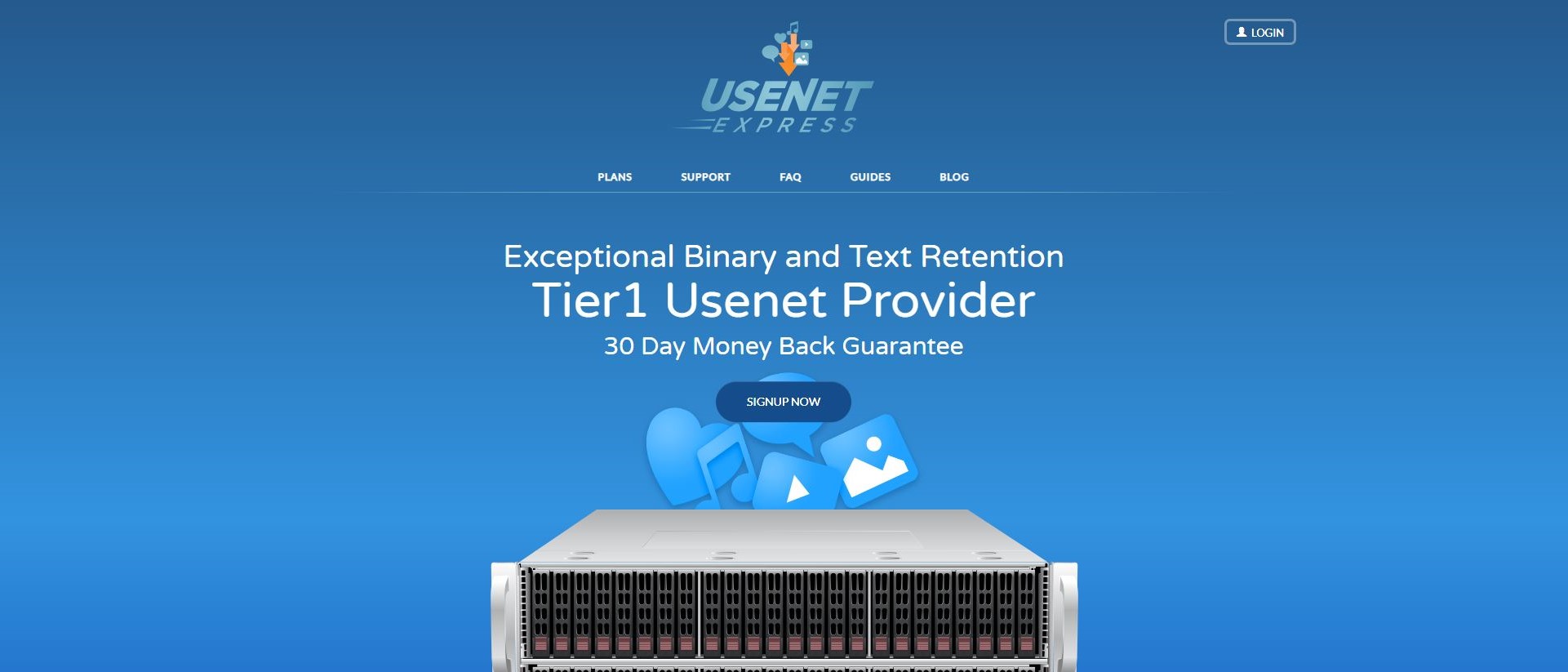TechRadar Verdict
Retention is below average, but UsenetExpress offers US and EU servers, the option to pay with Bitcoin, and bundles a VPN with the subscription packages
Pros
- +
50 connections
- +
VPN included with subscription plans
- +
Pay with Bitcoin
Cons
- -
Low retention
- -
US server farm only
Why you can trust TechRadar
If your Usenet provider isn't delivering the speeds and retention you need, you're going to start looking elsewhere. One provider to consider is UsenetExpress, which is working to develop its features to appeal to Usenet users in the USA and Europe.
First registered in 2016, UsenetExpress is slowly expanding its set of features. Boasting "exceptional binary… retention" in reality the service offers an industry standard. However, this is almost three times more than the limit found in our previous review. Last time, we also found that it only offers servers in the US, thereby slowing the service for EU-based users who would be more likely to select a more local provider. This time around, UsenetExpress offers US and European servers, offering fast access on both sides of the Atlantic.
- Want to try UsenetExpress? Check out the website here
UsenetExpress, therefore, is a service in a state of developing its features. However, if you're dissatisfied, UsenetExpress offers a 30-day money back service.
Features
UsenetExpress entices potential customers with a collection of attractive features. There is 3,000 days retention, a massive 50 connections, and fast network links. Multiple 10Gbps links means that subscribers should enjoy top speeds whether you have a 5Mbps or 1000Mbps internet connection. All connection types are supported - basic, original SSL encryption, and SSL/TLS, at 256-bit.
Deep US-based "retention spools" provide UsenetExpress with the ability to quickly serve content of all retention durations.
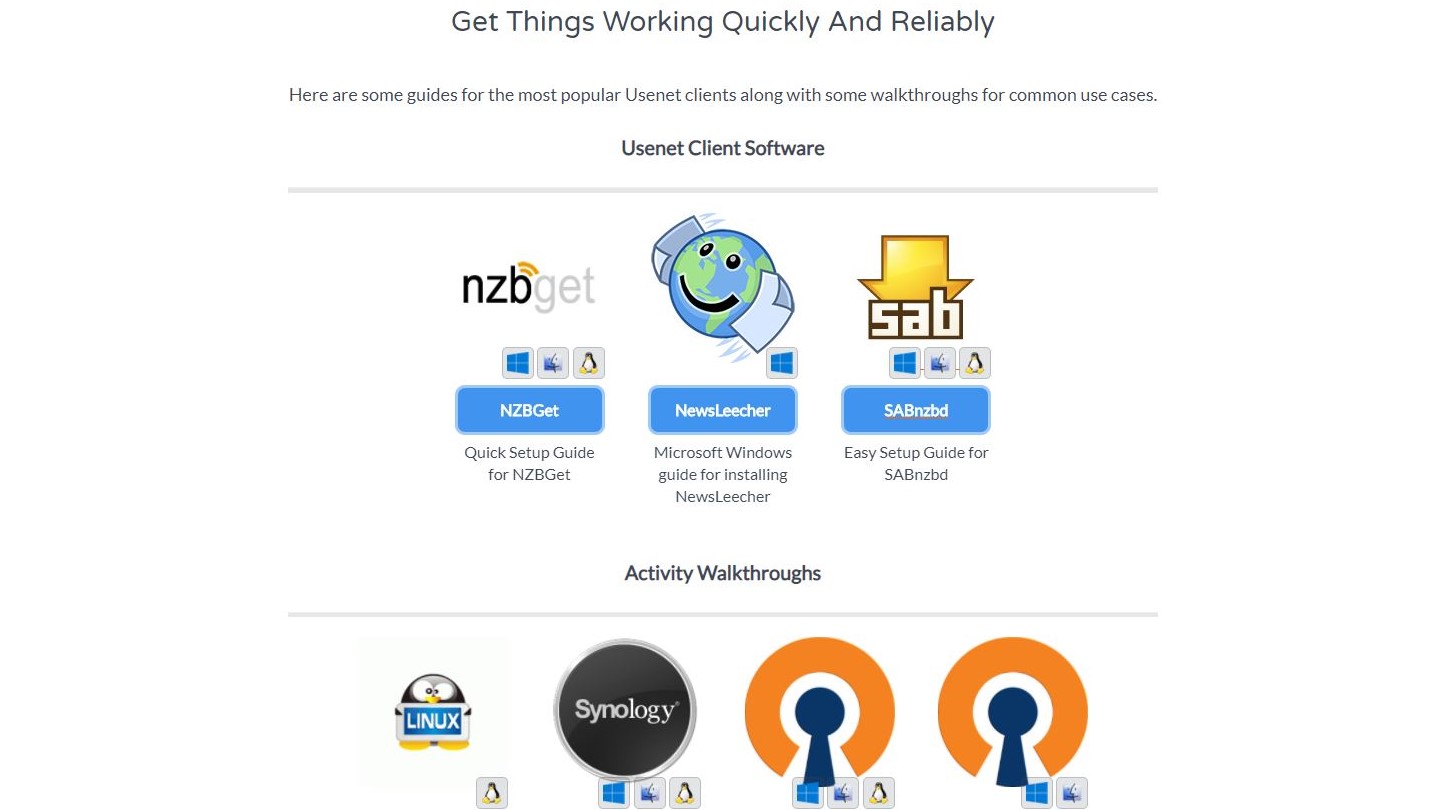
One of the most detailed support pages among all Usenet providers is available to read on the UsenetExpress website before you even sign up. They're keen to provide an avenue for support, with separate email for tech support (24/7) and billing enquiries (office hours). The site also features a detailed FAQ and several setup guides.
As with most Usenet providers, setting up the account in a newsreader is simple, requiring just the server name, username, and password.
Sign up to the TechRadar Pro newsletter to get all the top news, opinion, features and guidance your business needs to succeed!
Retention
Determining how much of Usenet's archive you can access, retention is a key factor for anyone looking for access to Usenet. While newsgroups have been around since the early 1980s, Usenet service providers only provide access to binaries (media files) and discussions from the 21st century. (Earlier files can be found in dedicated archives, or Google Groups.)
UsenetExpress specifies a 3,000-day retention limit, which is just over 8 years' worth of the 110,000-plus newsgroups in existence. This isn't the biggest retention limit on the market, but nor is it the smallest. Having said that, it's perhaps a little low for the price of the monthly subscription.
Supporting your Usenet access, UsenetExpress offers free posting. This means that you can upload your own binaries as well as post in discussion boards. These are few and far between these days, but there remains a few locations on Usenet that continue to have discussions.
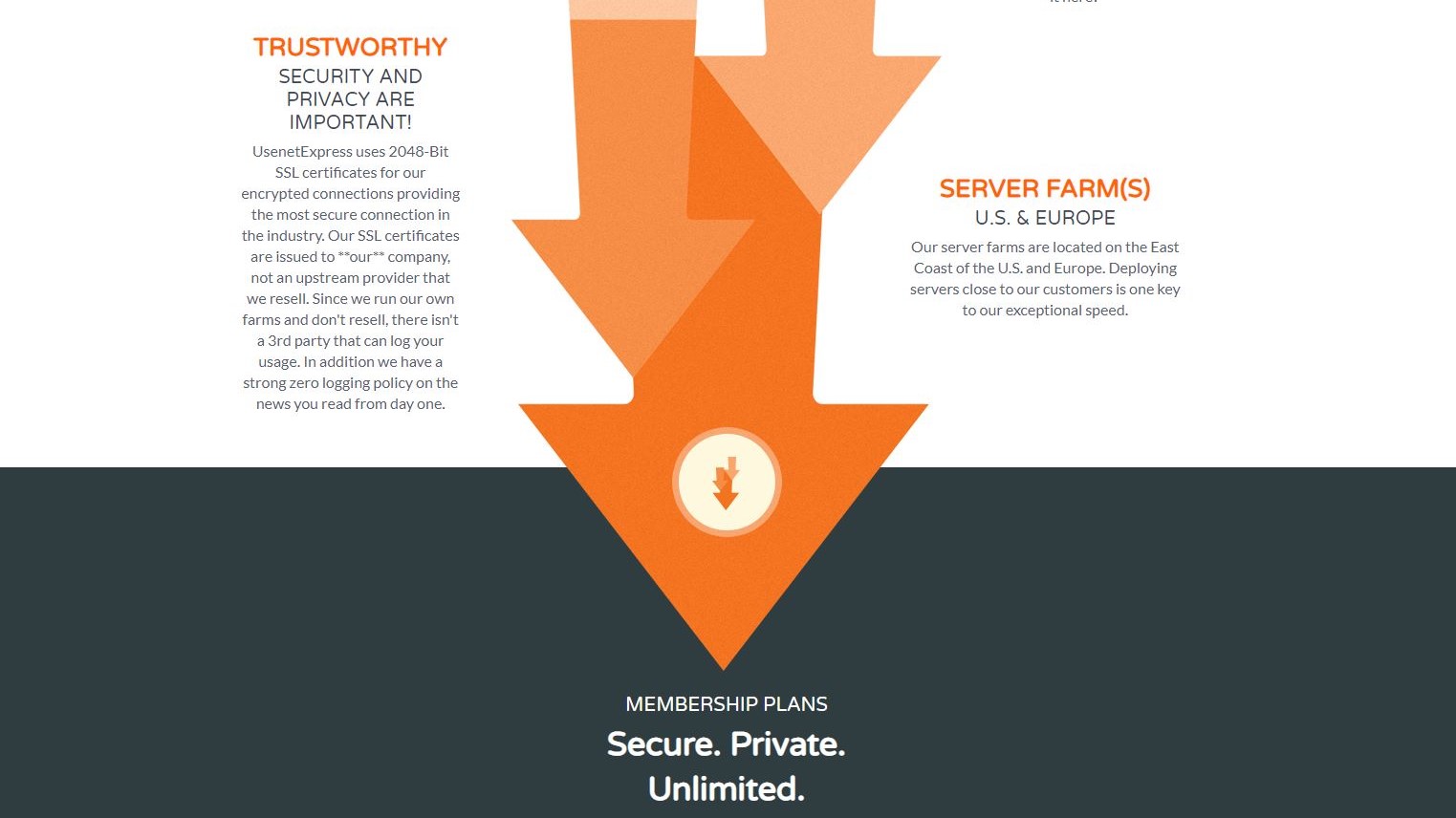
Security and privacy
Concerned about ensuring a secure and private connection with the Usenet binaries archive?
Your connections can remain secure when using Usenet via UsenetExpress, which employs 2048-bit SSL certificates and 256-bit SSL connections (if selected). SSL certificates are issued to UsenetExpress for clarity, and no third party logs your Usenet activity. There is also a zero-logging policy in operation.
In terms of anonymity, UsenetExpress keeps things simple. All that is required is an email address, username, password, and payment method. Bitcoin is one of the options, enabling your Usenet access to remain relatively anonymous. Credit card payments are processed externally and collected data is not permitted to be shared under the terms of the UsenetExpress Privacy Policy.
UsenetExpress offers a free bundled VPN for enhanced privacy. This can help to improve speed, too. Encrypted data cannot be profiled by ISPs, thereby limiting their traffic shaping capabilities. Standard downloading at peak times is dropped into an internet "slow lane" in this scenario, whereas encrypted traffic cannot be profiled in this way. The result: faster connections and more satisfying download speeds.
Curiously, UsenetExpress limits posting access as a measure to prevent spam. By default, new accounts have no posting ability. To overcome this, subscribers must request posting access, a process that takes 24-48 hours to grant.
Performance
UsenetExpress was tested with the Newsleecher desktop newsreader/client on a 55Mbps connection over the course of several days. Speed seemed to be limited to around 1000Kbps, rarely passing this. A range of data types of different retention ages were downloaded, from six-month-old 1.8GB videos to older newsgroup discussions.
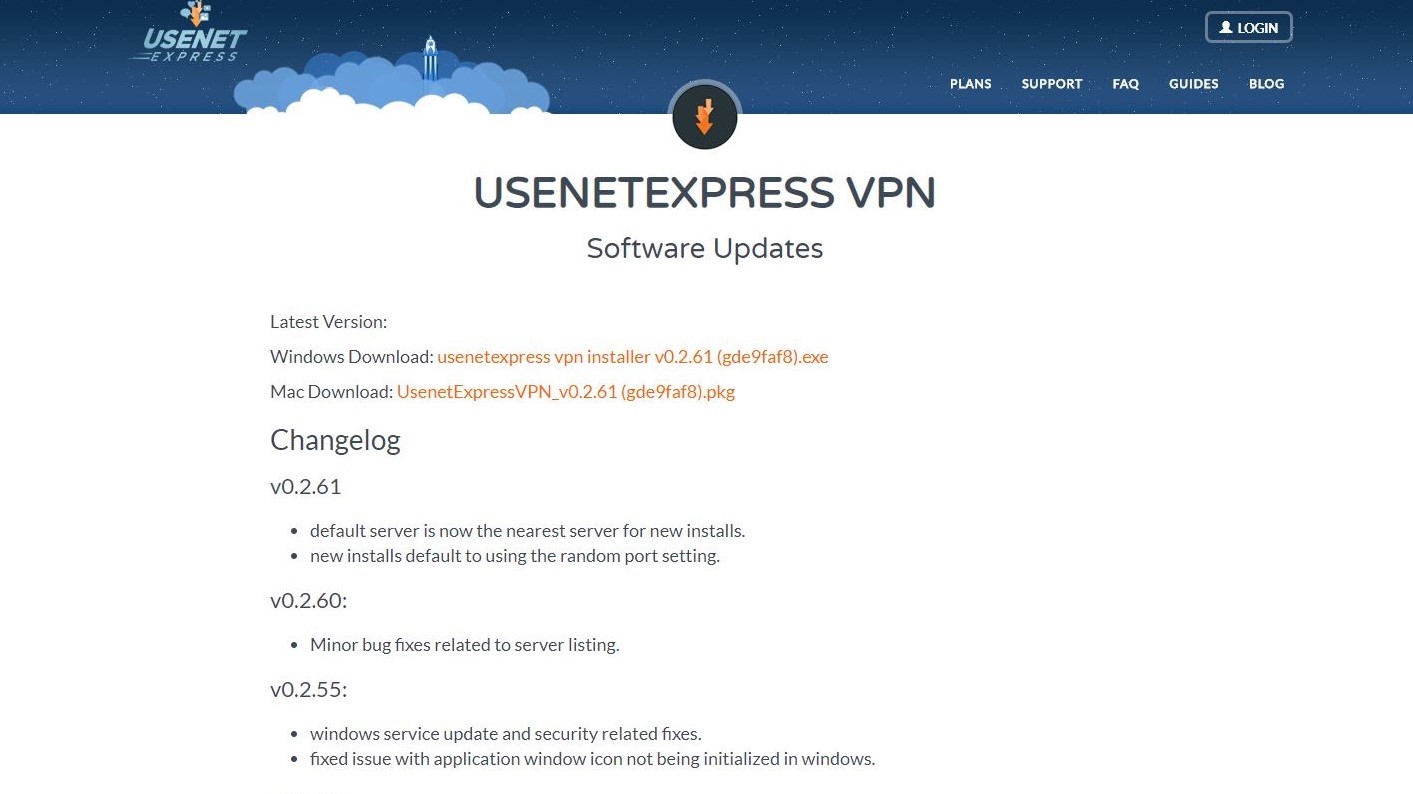
One thing to consider - if you're already using a VPN from a trusted provider, the addition of UsenetExpress' VPN is probably not required. It might even discourage you from using the service. However, it is not necessary for connection to Usenet via UsenetExpress, so it's entirely your call.
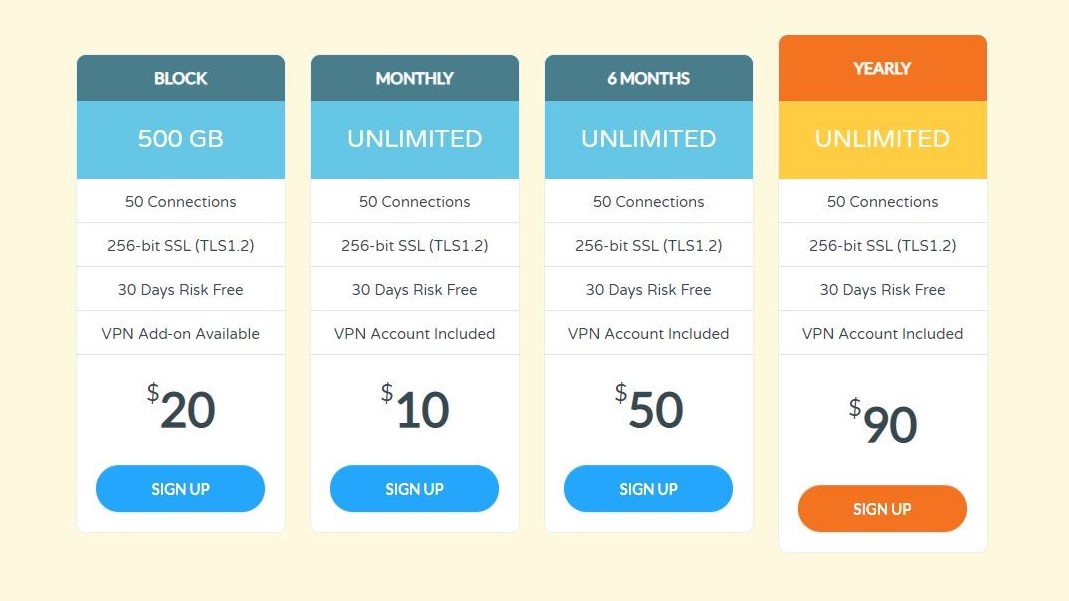
Pricing
If you're looking for a budget Usenet provider, UsenetExpress is probably not it unless you have the money to pay for the annual pack.
All subscription packages are available with unlimited data, 50 connections, 256-bit SSL (TLS1.2), the 30 Days Risk Free money-back guarantee, and a VPN account. There is no trial for UsenetExpress, so if you want to try it out it makes sense to use the Block package, which doesn't tie you to an unnecessary commitment.
The three standard subscriptions are Monthly for $10 (£7.74, €8.54), 6 Months for $50 (£38.68, €42.71) and Yearly for $90 (£69.63, €76.88)
The Yearly packages works out at $7.50 (£5.80, €6.41) a month, making it an excellent value for a Usenet provider.
Additionally, there's a one-off Block package, for $20. This gives you 50 connections, 256-bit SSL (TLS1.2), 30 Days Risk Free, and the VPN as an option add-on. It also limits you to 500GB.
UsenetExpress also offers some add-on options for existing subscribers. You can get 150 connections for an extra $2.50 (£1.92, €2.12) a month; for another $2.50 you'll get premium VPN access with more server locations and connections.
Final verdict
Relatively young, UsenetExpress is clearly a service that is playing catchup with more established names. It has done so relatively quickly, enhancing its retention provision and adding an EU server to improve speeds for European customers.
Arguably expensive but with a bundled VPN, the lack of a trial version in favour of the less friendly "money back guarantee" is disappointing. Overall, however, UsenetExpress' evolution in recent months is encouraging. While claiming to be a Tier 1 provider, we'd suggest otherwise - UsenetExpress feels bolted together, and thanks to things like VPN and posting access, you can see the join.
- We've also highlighted the best Usenet providers

Désiré has been musing and writing about technology during a career spanning four decades. He dabbled in website builders and web hosting when DHTML and frames were in vogue and started narrating about the impact of technology on society just before the start of the Y2K hysteria at the turn of the last millennium.
